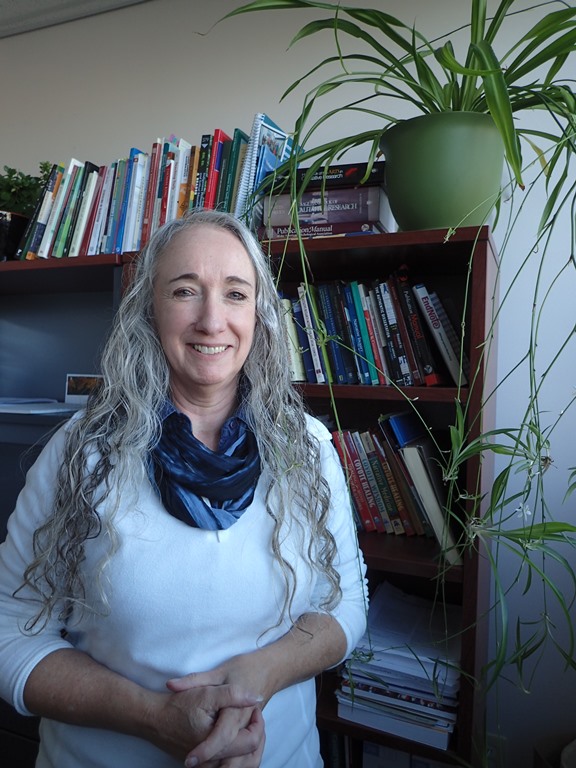Bachelor of education for Nunatsiavut students complete first semester
The No. 1 recommendation of the 2009 Report of the Presidential Task Force on Aboriginal Initiatives states: Memorial University must make community-based Aboriginal teacher education among the university’s highest priorities.
This past September, the first cohort of the bachelor of education (primary/elementary) degree program for  Nunatsiavut began its first classes, a program that is being facilitated in its entirety in Happy Valley-Goose Bay, Labrador.
Nunatsiavut began its first classes, a program that is being facilitated in its entirety in Happy Valley-Goose Bay, Labrador.
Offered by the Faculty of Education, the program has been specifically designed for the Northern Labrador Inuit educational context.
“It’s been several years of careful planning and consultation to make this program a reality,” said Dr. Gerald Galway, associate dean, undergraduate programs, Faculty of Education. “From assessing interest to curriculum development to collaborating with the Nunatsiavut Government’s Department of Education, it was a high priority that the various stakeholders and groups on the ground in Labrador were involved in the entire process.”
Thanks to a memorandum of understanding between the College of the North Atlantic and the Labrador Institute, which are co-located in the same building in Happy Valley-Goose Bay, students are able to complete the required eight pre-Education first-year courses as part of the college’s transfer program and complete two university-level courses through the Labrador Institute. The MOU also allows for students who have relocated from other Northern Labrador communities to enrol in the program to live in the college’s residences, which are situated next door to the main building.
The bachelor of education degree program for Nunatsiavut is the first of its kind. Aimed at members of Nunatsiavut and individuals who are interested in teaching in Inutittut, the curriculum will be culturally relevant to the Inuit students whenever possible.
For example, Polar Bear on the Rock, a children’s book based on an Inuit legend and written in both English and Inutittut, will likely be incorporated into the coursework, says Dr. Sylvia Moore, a professor in the Faculty of Education based at the Labrador Institute and who is involved in curriculum development for the program.
“Learning how to read, in a way, is about having experiences with a book as opposed to having them in real life,” she said. “It’s listening skills, how are they comprehending the story, how is it relevant to their lives, how are they connecting it with other things, other experiences in the world. By using a story that is relevant to their culture, the students will learn to become teachers who can in turn teach young pupils how to learn.”
The program is also unique in the fact that the Nunatsiavut Government has worked with an applied linguistics professor from Concordia University, Dr. Elizabeth Gatbonton, to develop the Labrador Inuttitut Training Program (LITP) to function as a language program concurrent to the education program. Part of a language rejuvenation program, the bachelor of education students will complete 36 modules throughout the course of their 4.5-year program and graduate with their degree plus a language proficiency certificate.
“The Inuttitut language course will be taught by a qualified Inuttitut speaking teacher who will be hired and trained by LITP to use the teaching approach of the LITP curriculum,” said Dr. Gabonton. “One or two Inuttitut speaking elders will be hired each term to assist the teacher and serve as language informants in the course.”
It is anticipated that in the next 5-10 years, says Dr. Gabonton, many of the present Inuttitut teachers in Newfoundland and Labrador will face retirement. It is the hope of furthering Inuttitut revitalization that lies behind the decision to encourage young Inuit to become Inuttitut teachers who can take over the task of ensuring that younger generations will learn the language.
For her part, Dr. Moore says running the two programs parallel to each other is “amazing.”
“The fact that Nunatsiavut is able to deliver the language program and have the bachelor of Inuit education graduates also speaking at whatever fluency level it will be, how unique, how wonderful that they’ll have this experience. I’m really excited about the whole thing. It’s new and it’s wonderful.”
The program has been made possible by funding from the Nunatsiavut Government and the Office of the Provost at Memorial University. Expressions of interest are currently being sought for a bachelor of education (primary/elementary) NunatuKavut Community Council and Labrador option to begin next year, subject to funding and numbers. For more information, please visit www.mun.ca/educ/labrador.